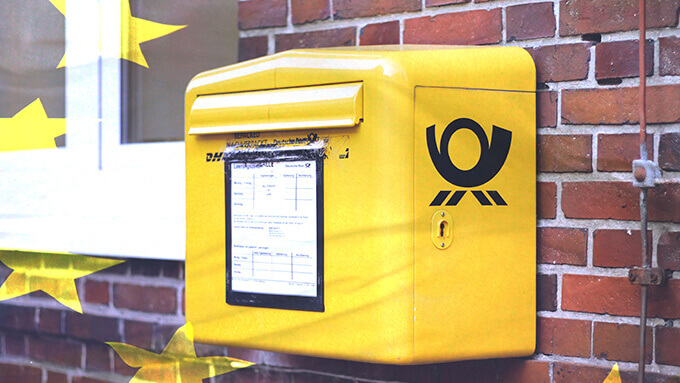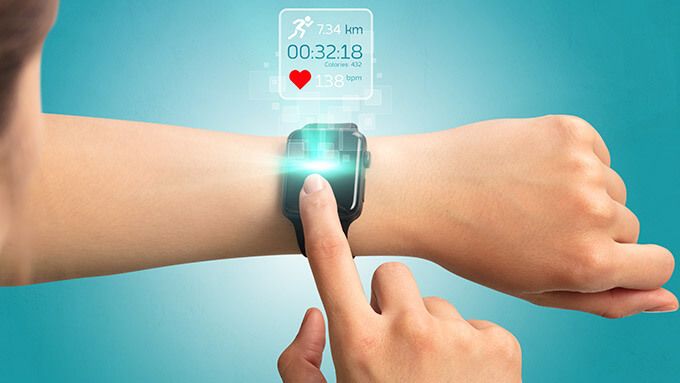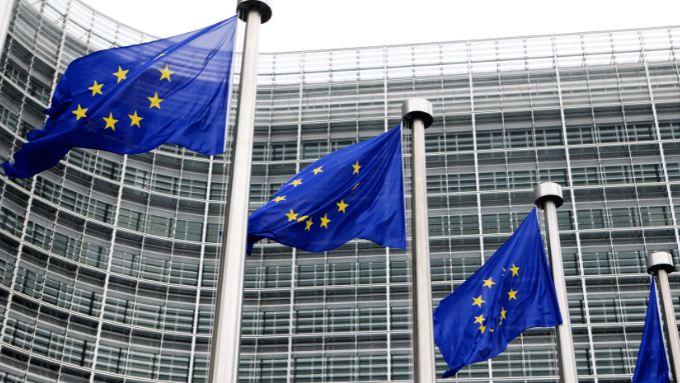A Comparative Approach to Joint Controllers
Introduction
The Personal Data Protection Law numbered 6698 (“PDPL”) introduces definitions for many concepts such as personal data, data controller, data processor and data subject. In terms of understanding and interpreting these concepts, secondary legislation, Personal Data Protection Authority (“Authority”) guidelines and Personal Data Protection Board (“Board”) decisions play a key role. On the other hand, the concept of “joint controller”, which is frequently brought up in data processing activities but not included within the scope of the PDPL, was considered and referenced for the first time by the Board with its decision dated 23/12/2021 and numbered 2021/1303.[1] Although the PDPL’s definition of data controller does not exclude the possibility of joint controllers, the decision addressing this concept for the first time, is noteworthy. In this Newsletter, the concept of joint controller will be discussed with respect to European and Turkish data protection legislation.
Joint Data Controller in European Union Legislation
Directive 95/46/EC of the European Parliament and of the Council of 24 October 1995 on the protection of individuals with regard to the processing of personal data and on the free movement of such data (“Directive”), which is a guiding source for the preparation process of the PDPL and shares many similarities with, defines data controller as a person who, alone or jointly with others, determines the purposes and means of data processing. With this definition, it is clearly regulated that data controller can determine the purposes and means of data processing alone or jointly with others, while under the PDPL, data controller is defined as a natural or legal person who determines the purposes and means of processing and is responsible for the establishment and management of the data recording system. Considering the definition by the PDPL, although it does not explicitly exclude such concept, it does not offer any clarification as regards to joint controllers.[2]
On the other hand, the European Union General Data Protection Regulation (“GDPR”) elaborates the regulation introduced by the said Directive. Article 26/1 of the GDPR similarly recognizes the persons who jointly determine the purposes and means of data processing as joint controllers. In other words, the parties who jointly participate in determining the purposes and means of data processing are joint controllers. This participation may take place in the form of making decisions jointly, or it may take place in the form of complementary decisions and having a concrete effect on the determination of the purposes and means of processing. Another important criteria for determining joint controllers is that the processing is not possible without the participation of both parties, and that the participation of the parties is inseparably linked to each other.[3] On the other hand, the relationship between joint controllers may take different forms; they may not undertake data processing activities equally. Joint controllers may establish a close relationship by jointly determining all the purposes and means of processing, or they may have loose ties and determine purposes or means only.[4]
Article 26/1 of the GDPR further provides that, joint controllers shall in a transparent manner determine their respective responsibilities for compliance with the obligations under this Regulation, in particular as regards the exercising of the rights of the data subject and their respective duties to provide the information, by means of an arrangement between them unless, and in so far as, the respective responsibilities of the controllers are determined by Union or Member State law to which the controllers are subject.[5] The second paragraph of the same Article provides that an agreement must be concluded between joint controllers and that their roles and relationships with data subjects must be accurately reflected in this agreement. This facilitates the determination of liability for data processing activities where there is more than one data controller and the purposes and means of data processing are determined jointly by the parties.[6] However, if the arrangement between joint controllers does not fully reflect the relationship in accordance with Article 26/2 of the GDPR, actual arrangement should be considered.[7] Moreover, the last paragraph states that data subjects may assert their rights against any controller, regardless of the arrangement between the joint controllers, thereby reinforcing the protection provided to data subjects under the GDPR. Thus, the minimum level of protection established for data subjects under the GDPR is maintained and at least one controller is held liable for the data processing activities carried out.[8]
The opinion 1/2010 on the concepts of “controller” and “processor” by the Working Party which was established pursuant to Article 29 of the Directive sets out some scenarios for joint controllers. In one example, a travel agency sends personal data of its customers to airlines and hotel chain for travel booking. The correspondent airline and hotel confirm the availability of the requested seats and rooms, and the travel agency issues travel documents and invoices for its customers. In this scenario, the travel agency, the airline and the hotel are individually data controllers. There is no processing with common purposes and means; data is transferred between different data controllers. In another scenario, the travel agency, hotel chain and airline establish a common platform to establish cooperation for reservation management.[9] They agree on what data will be stored, how reservations will be received and confirmed, who will have access to data, and share customer data to conduct integrated marketing activities. In this case, the travel agency, airline and hotel chain have joint control over how data of their respective customers will be processed and therefore considered as joint controllers for data processing activities to be carried out on the platform.[10]
The principal decision (“Decision”) by the Board on blacklisting in the car rental industry
The Board decision dated 23.12.2021 and numbered 2021/1304, published in the Official Gazette dated 20.01.2022 and numbered 31725, introduced the concept of joint controller which is not regulated by the PDPL for the first time.[11] In the decision, it is stated that blacklisting in the car rental industry was identified in accordance with the notifications received by the Authority. The blacklisting practices by the car rental companies in question compile personal data of the customers and negative circumstances that arise during the use of the rented cars, and it is stated that a system that allows data sharing between car rental companies using the same software has been established. The software company manages the software and the database, and the car rental companies cannot intervene with the software, but only provide content. As a result, it has been determined that the personal data provided by real persons to companies in order to rent a car are transferred to the software with a blacklisting feature and data in question are shared with many users using the same software.
In the decision mentioned above, the Board repeats the conditions for data processing under Article 5 and the conditions for transfer under Article 8, and states that data controllers must take all kinds of administrative and technical measures to prevent unlawful processing of personal data in accordance with Article 12 of the PDPL. In addition, pursuant to the Identity Notification Law numbered 1774, car rental companies are obliged to keep the identity information and records of renting agreements, and to render information, documents and records available for the examination by law enforcement officers. Accordingly, companies are obliged to submit necessary data to the Rental Vehicle Notification System and process data in order to do so. In light of these explanations, it is stated that data processing activities of car rental companies, pursuant to Article 5/2 of the PDPL, satisfy the conditions of “being explicitly required by law”, “being mandatory for data controller to fulfill its legal obligation”; and also, it is possible for companies to process data because it is mandatory for the establishment and performance of a contract between the company and its customers. On the other hand, when the fundamental rights and freedoms of data subjects being the customers and the legitimate interests of data controllers for sharing personal data collected through certain practices such as blacklisting with other car rental companies is considered, it is concluded by the Board that the fundamental rights and freedoms of the data subject prevail. Therefore, the condition regulated under Article 5/2/f of the PDPL which suggest that “data processing is mandatory for the legitimate interests of the data controller, provided that it does not harm the fundamental rights and freedoms of the data subject” does not exist in the concrete case. In addition, the Board finds that rendering personal data accessible to third parties using the same software is contrary to the principles of being in compliance with the law and good faith; being processed for specific, explicit and legitimate purposes; and being connected, limited and proportionate to the purpose.
In light of the evaluations made, the Board considers car rental companies as data controllers. Most importantly, the Board considers car rental companies and software companies that use the blacklisting feature for their own benefit as joint controllers. It is stated that the responsibility of joint controllers is based on the course of data processing. The criteria taken as basis in this direction are exemplified as; (i) who is the first and last user of the data processed, (ii) by whom the data entry is made, (iii) for what purpose the data entry is made, (iv) who decides on modification, deletion or transfer of data, (v) what activities data controllers, excluding data collectors, carry out with the processed data. Finally, the Board draws attention to the fact that in the concrete case where personal data processed is shared with many car rental companies using the same software, it may be difficult for the data subjects to exercise their rights regulated under Article 11 of the PDPL against data controllers, as it is very difficult to identify the parties with whom data is shared.
- Please see for the summary of the decision. https://www.kvkk.gov.tr/Icerik/7288/2021-1303 (Access date: 06.03.2023)
- Dülger, Murat Volkan: Kişisel Verilerin Korunması Hukuku, İstanbul, Hukuk Akademisi, 3. Edition, 2020, p. 196-197.
- European Data Protection Board, “Guidelines 07/2020 on the concepts of controller and processor in the GDPR”, 02.09.2020, p. 3.
- Working Party 29; “Opinion 1/2010 on the concepts of “controller” and “processor”, 16.02.2010, p. 19.
- For the full text of the regulation, please see. https://gdpr-info.eu/
- Dülger, p. 197.
- WP29, p. 18 and 24.
- Dülger, p. 199. , Develioğlu, Hüseyin Murat: 6698 Sayılı Kişisel Verilerin Korunması Kanunu ile Karşılaştırmalı Olarak Avrupa Birliği Genel Veri Koruma Tüzüğü uyarınca Kişisel Verilerin Korunması Hukuku, İstanbul, On İki Levha Yayıncılık, 2017. Please see for Turkish translation of GDPR.
- WP29, p. 18.
- WP29, p. 19.
All rights of this article are reserved. This article may not be used, reproduced, copied, published, distributed, or otherwise disseminated without quotation or Erdem & Erdem Law Firm's written consent. Any content created without citing the resource or Erdem & Erdem Law Firm’s written consent is regularly tracked, and legal action will be taken in case of violation.




















